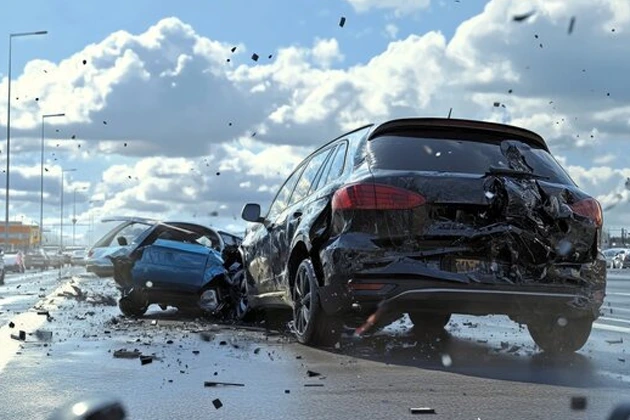Rear-end collisions are the most common type of traffic collision. Hundreds of thousands of traffic crashes occur in a year, and according to the NHTSA, rear-end collisions contain 23 percent of those accidents. Although people see them as minor, rear-end collisions can lead to serious, life-threatening injuries.
This article considers some common causes of rear-end traffic collisions and related injuries. Meanwhile, if you are a rear-end collision victim, you should consider contacting attorney Steve Fleschner of Fleschner, Stark, Tanoos & Newlin immediately after your medical checkup.
The Common Causes
A rear-end collision occurs when the front of one car collides with the rear of another. The same causative factors exist in every type of car accident, including rear-end collisions, and they are included below.
-
Distracted Driving
Distracted driving is a notable cause of rear-end crashes, accounting for about 3,500 traffic fatalities yearly. When we say “distracted driving,” we talk about anything that diverts your attention from driving safely. These actions include texting, eating, drinking, or conversing with passengers.
-
Speeding
The next most common factor is speeding – when a driver deliberately disregards the posted speed limit. Speeding jeopardizes the lives of the person speeding and everyone around them. Speed limits ensure everyone is safe, and negligently or recklessly disobeying them significantly increases the likelihood of crashes.
-
Tailgating
Tailgating is when a driver follows the car ahead of them too closely rather than leaving a safe distance. The other vehicle could suddenly apply the break, perhaps due to a road hazard or unexpectedly stopped traffic. Failure to leave sufficient space between you and the next driver can lead to a serious rear-end collision.
-
Weather
Every driver and road user must be responsible enough to know the weather conditions of their area. You should understand how unpredictable and difficult navigating the weather can be. Therefore, you must know how to prevent accidents in sudden unfavorable weather conditions.
-
Driving While Impaired
This is another common reason for rear-end collisions. Drivers who drive under the influence of drugs or alcohol not only pose a threat to themselves but also to other drivers and pedestrians on the road. Substances can alter their state of mind, leading to reckless driving, reduced presence of mind, and a sense of not being able to control motor functions fully.
Common Injuries Related to Rear-End Accidents
There are general injuries related to car accidents. These include:
-
Whiplash
This soft tissue injury occurs when the neck moves back and forth rapidly and with force. Whiplash is the most common injury associated with rear-end auto crashes, and symptoms include headaches, neck pain, muscle stiffness, and dizziness.
-
Head and Face Injuries
More severe rear-end collisions can lead to injuries to the head or face, including but not limited to a brain injury. For instance, when a rear-end collision occurs, the head or face can strike the steering wheel, dashboard, or another object in the car.
The force with which this impact happens can result in injuries like a broken jaw, facial fractures, lacerations, and dental injuries. Also, more severe injuries like brain injuries can occur, leaving the victim with potentially damaged cognitive abilities and brain function.
-
Psychological Injuries
Psychological injuries like emotional trauma are less quantifiable but as devastating as bodily injuries. These injuries include anxiety, PTSD, and emotional anguish caused by the accident.
The victim may experience symptoms immediately after the accident, or the symptoms may gradually evolve as time goes on. Either way, psychological injuries caused by rear-end collisions leave victims with a diminished quality of life.
Conclusion
Rear-end collisions can be severe, even if you do not feel hurt in that instant when the accident happened. Therefore, you should see a doctor for a check-up as soon as possible to ensure you are not leaving a serious injury untreated. Moreover, the medical evaluation can be valuable evidence in your personal injury claim if you intend to file one.










